PLANNING NEXT STEP

Manufacturing companies are already focused on preparing for a rapid recovery, drawing key learnings from the pandemic and its impact on their business.
Here’s knowing what the leaders of the Indian manufacturing industry plan to bounce back while embracing changes and adjusting to the new normal…
 |
L Krishnan Managing Director TaeguTec India Pvt Ltd Past President, IMTMA |
TaeguTec is busy with resuming activities in the post-Covid lockdown phase. In our factory as well as with our field personnel, we are taking several precautions, keeping the safety of our people as a top priority. On the factory side, we are fully geared up, and in fact, the layout of our factory lends itself most appropriate for social distancing. With added safety measures like temperature checks and frequent sanitation routines, we have gradually resumed operations over the last one month. It’s been good going concerning our manufacturing activities.
Optimism amid concerns
However, the matter of greater concern is that of customer meetings and support. We are still waiting for the cloud to clear regarding domestic and local travel. Some of our customers are in containment zones. The restoration to absolute normalcy, therefore, is only expected in three to four months, if not more. But physical movement apart, we see no great challenge in customer interactions considering TaeguTec has always led in matters of incorporating digital technologies for business. Over the last 10 weeks, we have been interacting with customers via myriad conferencing tools and, thus, have minimized the gap between personal and digital interaction.
In addition to these, the company is preparing to ensure we operate lean, and lower our breakeven levels and save cash to stay healthy in the long run. Our plans for upgradation and modernization meanwhile continue unabated. We remain optimistic about the opportunities to come in the times to come.
Automation and digital investments to up
We don’t see any big change in long-term investment commitment. We continue to be committed, although some changes in the timelines due to low demands are inevitable. As the market recovers, investments will come back.
Of course, the industry’s inclination to automation and digital investments are expected to increase in the times to come.
TaeguTec has always been at the forefront of any initiatives promoting automation and digital technologies for operations and safety in our two decades of existence. So, we don’t see any significant change or impact on our strategy.
 |
|
We, at BFW, are not looking at a sharp recovery in the short run. Yes, we are optimistic for a fairly good recovery in the medium term. Hence, resilience and constant focus is warranted. We are focused inwards — on improving our efficiency and our offerings in terms of products and services. Keeping that in mind, we have not dropped any of the investments in the new product development.
Stress on advanced technologies
There will be a challenge on the availability of people and cost structure. And the adoption of advanced manufacturing will speed up. BFW has been investing significantly on Machining Solutions, Process Engineering, Automation & Robotics and Additive Printing. The latter part of Industry 4.0 Solutions offerings to customers is through our fully-owned subsidiary, M2NXT.
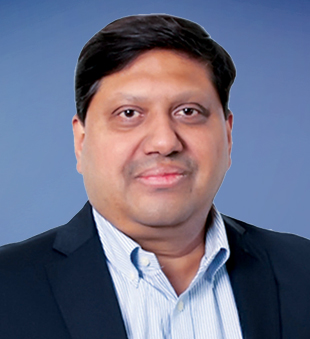 |
Reji Varghese Managing Director RV Forms & Gears LLP |
We have been focused on Industrial AI and Industry 4.0 many months before the lockdown. Indian manufacturers are now beginning to start taking Industry 4.0 seriously. There’s been increased interest in predictive analytics that predicts trends in production, tool wear analytics, cost per component per tool, failure patterns and predictive maintenance of machines, fixtures and special equipment etc. What is interesting is that a large percentage of companies engaging with us right now are from the Tier 1 & 2 segments. We feel that in the next few years, the Automotive sector as a whole will be looking to enable IoT in plants and equipment across the board in a big way.
Economy to bounce back
We feel companies will be a bit cautious in investing a lot of money on advanced technologies for the next few months as no one knows how things are going to pan out over the next few months.
However, for cost-effective advanced solutions like Smartfix 4.0, which uses AI/ML etc. but is still very affordable for even small companies, we have seen a surge of interest and purchases recently.
If both Agriculture and Infrastructure pick up, likely, the Commercial Vehicle segment will also revive.
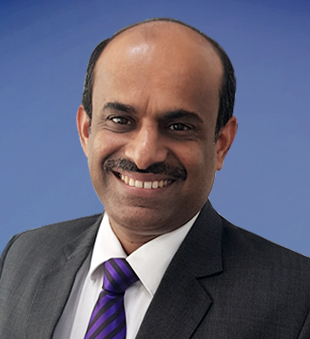 |
Umesh Pai Managing Director EPLAN Software & Services Pvt Ltd |
The business world is expected to change beyond our current comprehension. We need to be innovative as well as creative in analyzing all the aspects. Due to a sudden and severe lockdown, there are multiple questions raised on the industries’ reliability in the global value chain, be it in the back office, the supply chain or customer response. All these need to be radically looked into. That’s what the Prime Minister meant when he talked about being ‘self-reliant’. When we are self-reliant that’s when we can be relied upon. Therefore, we need to critically look at our preparedness, specifically about our systems, efficiencies and our ability to re-invent ourselves.
Focus on customers
For us, this is the time to be with our customers and to be of use to them in remodeling or reimagining their design processes. It’s very critical for their survival, and with that, our survival. In this crisis lies the opportunity to help them be efficient and reliable by sharing with them the global best practices and processes.
Before the Covid-19 onslaught, Industry 4.0, automation, etc. were considered aspirational. Now they are essential to survive.
We see a tremendous requirement in the automation space be it factory automation, warehouse automation, or anywhere else.
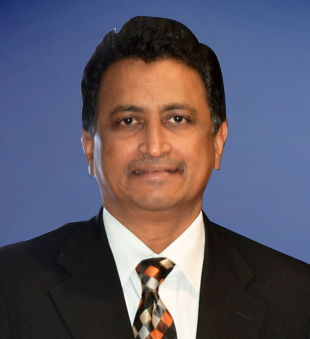 |
Himanshu Shaparia Vice President – Sales Jyoti CNC Automation Ltd |
Our first priority in the crisis response is focusing on health, safety, essential services, and virtualization of work. We are focusing on strategic review, stakeholder engagement, finance and funding, innovation and technology review, strong and supportive supply chain management, safe working process and workforce planning. The crisis has disrupted many lean supply chains with just-in-time inventory. We have to identify risks at external suppliers which may cause our supply chain to collapse. Another area we are concentrating on is the assessment of demand patterns and customer relationships.
During this crisis, the shortage of life-saving ventilator is a huge threat. Under the visionary leadership of Parakramsinh Jadeja, Jyoti had accepted the challenge to design and develop the ventilator which could be an immediate aid in the Covid-19 treatment. This was a good example of flexibility in our manufacturing system where resources were well utilized to attain this goal successfully.
Any crisis plays out in three timeframes: Respond, Recover and Thrive. Currently, the second phase is where everyone is trying their best to recover and regain the pace. The most important will be the ‘Thrive’ phase where organizations prepare for and shape the ‘next normal’. There would be a spike in technological advancement and innovation post Covid-19. The world is witnessing a rapid shift to virtual and remote work with extraordinary levels of flexibility, teaming, and adaptability. A similar evolution is expected to happen in the adoption of advanced manufacturing technologies as organizations are grappling with the challenge to perform with a more dispersed workforce and other allied limitations. The shift would lead to embracing of automation, additive processes and manufacturing, and Industry 4.0.
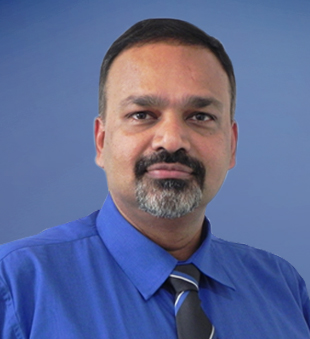 |
Punit Gupta Managing Director - West Asia (India & SEA) Blaser Swisslube India |
We, at Blaser Swisslube, have always worked on building our business with strong fundamentals. They help us to increase our resilience over time. We have been a highly agile, evolving and efficient company. It will help us to adjust to a new normal fast. Globally, we work on a long-term strategy with long-term customers, business partners and employees who are committed to the same cause and create a strong chain. Looking at the situation all over the world, every company has to drive for higher competitiveness to survive and grow.
Enhancing productivity and quality is the sustainable route to achieve competitiveness on a global level. We will intensify our journey to work with our customers and help them achieve better competitiveness. This journey is long and involves change management.
Going the right way
The industry will face a dilemma between investment Vs. expenditure post pandemic. This is the time to start preparing for robust businesses. Being focused and true to your objectives will be the primary key.
Being competitive with higher reliability will call for a paradigm shift in decision-making processes which will be based upon data and facts. Companies have to find ways to collect many data points in the manufacturing processes. The beauty of this change will be high transparency within the organization.
Investments in the right technologies and the right people will be the key to manage the future of the companies well. These are doable and every company can find a way ahead once they decide their clear approach. Fundamentals will improve and gain significance in time to come.
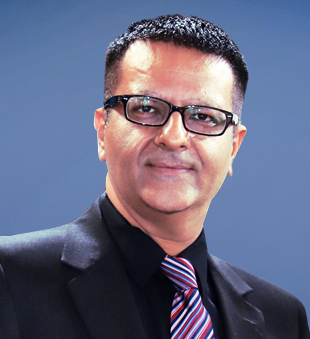 |
Vineet Seth Managing Director – South Asia & Middle East Mastercam APAC |
When we announced a work from home directive before the lockdown, most of our teams were already prepared for a remote working plan that spanned the last three months. We communicated both internally and externally about our events and action plans while ensuring work continuity for our customers who were involved in essential manufacturing.
Since our business supports CNC manufacturing, we are doing all we can for our customers to get back to normalcy as much and as soon as possible. We have supported them with free training and update programs in the past three months, and also assisted them during the lockdown with remote licenses to ensure that their CNC programmers could complete projects while working from home. Since we have permanent staff based out of eight locations across the country, we are well-prepared for site visits (if necessary, and with all the mandatory precautions) to help our customers with restarting their manufacturing.
Prioritizing human capital
It is natural that most organizations will restrict or postpone their capital investment decisions to ensure that they have sufficient liquidity for operational expenditure. However, we believe that this will be only until cash flow returns to reasonable numbers. This could be a couple of weeks to a couple of months based on the overall market resilience. It is my opinion that organizations must prioritize human capital over long-term capital investments. That being said, all small- and medium-term capital investments must continue as per the plan. This way, companies will be able to better utilize the current gap for quick learning and implementation of the short- and medium-term projects, while ensuring that they do not lose out on the human capital/knowledge pool as well as their medium-term profitability.
From our end, we are offering various options for manufacturing companies to purchase our software, without compromising on their current need for maintaining liquidity.
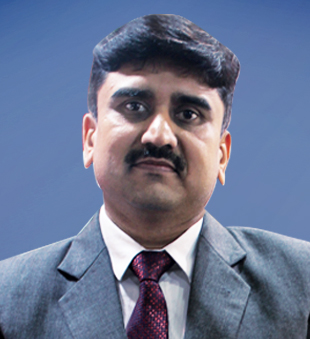 |
Yatendra Kumar Business Head MotulTech India |
Today, all manufacturing companies are focused on resuming their operations as soon as possible. However, everyone is facing internal as well as external challenges. When I connect with my customers, vendors, and friends across industries, I realize they are facing the same set of challenges including manpower, transportation and fund flow to name a few.
Reducing manufacturing cost
We have worked hard during the lockdown and made our team including distributors self-sufficient to tackle technical issues and commercial decisions so that we can focus on our new customers and new products in different/new segments. We and all our stakeholders are ready to not only survive, but also flourish in this environment. We have invested in advanced online and app-based tools like ‘iCast EVO’ to help our customers with the ways to generate money by reducing the manufacturing cost.
In my view, this is the time to look for new technologies to reduce the overall cost of manufacturing and the total cost of ownership of the equipment.
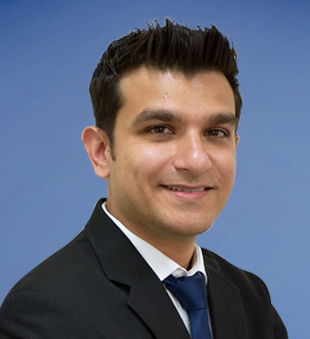 |
Maulik Patel Executive Director Sahajanand Laser Technology Ltd (SLTL) |
SLTL has always believed in innovating. Hence, although our research team could not resume its duties on the field during the lockdown, it was still able to provide customer support in every way possible. With the skills of our experts and constant support of our Chairman & Managing Director Dr Arvind Patel, we have developed an indigenous high-end ICU ventilator, which we call ‘Pran Saiyam’, to combat Covid-19. After the successful rollout of Pran Saiyam - version 1, which started on April 03 and completed on April 11, the engineers have started working on its upgrades.
To ensure our team remains safe in this fight against the pandemic, we have been providing transportation to our people. Our managers are counselling them and helping them adjust to the new normal. Every insight that we find on the current status of the demand and supply is shared with teammates transparently from time to time.
Challenges to be overcome
With the core purpose of innovating consistently, we have launched IoT as well as Smart Factory Solutions such as loading-unloading and opti-store for optimal utilization of resources. But despite the investments in tech products, challenges remain to be faced by the industry.
Before Covid-19, tech companies were investing heavily in advanced technologies such as automation, robotics, and artificial intelligence to reinvent how work is done. But post-pandemic if double down on investment is adopted to weather the coronavirus storm, it would not prove to be fruitful for the manufacturing firms because of a missing critical factor – the employee input. Although technology advances are seen as a solution to strengthen operational capabilities, companies will have to first ask their employees critical questions before new technologies are deployed. Investments in advanced manufacturing technologies will not do any good if employees are not prepared to utilize them.

POONAM PEDNEKAR
Chief Copy Editor
Magic Wand Media Inc
poonam.pednekar@magicwandmedia.in




 Facebook
Facebook.png) Twitter
Twitter Linkedin
Linkedin Subscribe
Subscribe